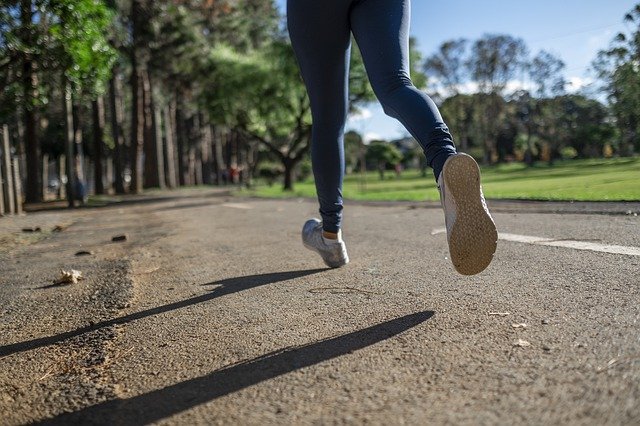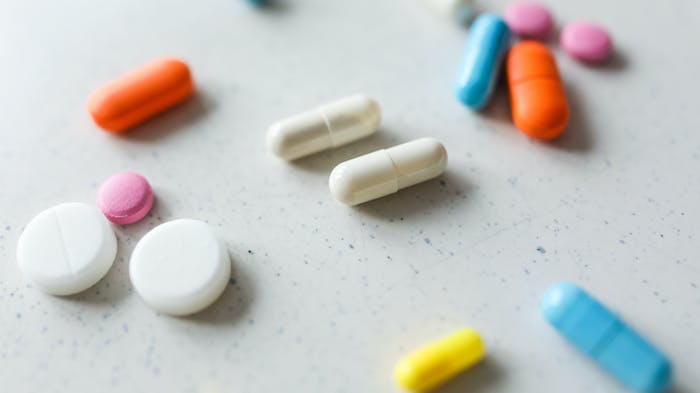Do you struggle with energy throughout your day? Do you find it difficult to motivate yourself? You may have low dopamine levels.
Dopamine is crucial to a functioning healthy lifestyle. If you lack energy or struggle to find motivation during your day, you may have a deficiency and be lacking in dopamine.
Don’t worry, though, there are ways in which you can help increase your levels of dopamine so you can start to feel energised again.

Dopamine is a chemical messenger in your brain that governs a whole host of functions such as memory, sleep, mood, motivation and attention. [1]
The chemical rewards you with feelings of pleasure as and when you engage in certain behaviour that is beneficial to you. These feelings of pleasure encourage you to repeat the type of behaviour.
Every time we take part in a pleasurable act, such as eating good food, meeting friends, or physical exercise, a small amount of dopamine is released into our brain.
Having a substance use disorder, using recreational drugs or drinking alcohol, however, can also cause dopamine production. This is why dopamine levels and the release of dopamine have been linked to addiction.
Low dopamine levels can cause a whole variety of issues, but low levels of dopamine and dysregulated levels can be linked with mental illnesses such as depression and schizophrenia.
Dopamine levels have also been associated with addiction and Parkinson’s disease. [2]

Low dopamine levels can cause a number of debilitating symptoms that can stop you from leading a functional lifestyle.
These symptoms can include: [3]
Low dopamine levels can be from a number of different factors.
These include:

Below are several things you can do to increase the release of dopamine in your body naturally.
Research has shown that a lack of sleep has a large effect on natural rhythms that happen during the day and the corresponding dopamine production. [4]
If you don’t get enough sleep or have disturbed sleep, dopamine receptors can be adversely affected. This means that during the day you will most likely have disturbed dopamine production.
The Center for Disease Control and Prevention (CDC) recommends that adults should get seven or more hours of sleep each night to be able to function properly. [5]
With enough sleep, the release of dopamine in your body should be balanced and keep you motivated throughout the day.

Maintaining a healthy diet can have many positive effects on your body, but it can also increase the production of dopamine.
It is especially important to eat lots of protein-rich foods. Amino acids make up protein and one particular amino acid, tyrosine, is known to have a crucial role in the production of dopamine. [6]
You can find tyrosine in protein-rich foods such as beef, turkey, eggs, dairy, soy and legumes.
Other research found that consuming saturated fats in large amounts could disrupt dopamine signalling in the human brain and lead to a dopamine deficiency. Foods high in saturated fat include animal fat, full-fat dairy and palm oil. [7]
More research has found that the gut and the human brain are closely linked. Certain species of bacteria found in the gut have been associated with producing dopamine and causing an increase in dopamine levels. [8]
You should try to consume probiotics that are found in food such as yoghurt.
Regular exercise is highly recommended for boosting endorphins and improving your overall mood.
Research has proved that spending time exercising can raise your dopamine levels and result in improved mood. [9]
While there isn’t enough research to tell you why exactly this happens, you will most likely notice how after even 10-15 minutes of aerobic exercises you start to notice an improvement in your wellbeing and mood.
For exercise and well-being, the World Health Organisation (WHO) recommends at least 150-300 minutes of moderate aerobic activity each week. [10]
Listening to music is a fantastic way to stimulate the production of dopamine in a naturally fun way.
Many reports have proven that listening to music can boost dopamine levels in the brain and can even be useful as an alternative treatment for various mood disorders. [11]
Make a list of your favourite music and create a playlist to listen to when you’re feeling unmotivated or feeling low.

A low level of sunlight has actually been associated with a decrease of mood-boosting transmitter such as dopamine. Sunlight exposure can increase these levels and so you should aim to get outside when you can.
In the winter especially, it is proven that low levels of sunlight can cause seasonal affective disorder (SAD). [12]
Be mindful, though, that if the UV index is above 3 you should be wearing suncream to protect your skin from the harmful effects of UV rays.
Meditation is the act of completely clearing your mind, focus inward and reflect on the present.
Regular practise is closely linked to an improvement in mental health and research has found that meditation can help boost your dopamine levels. [13]
If you’re new to meditation, you might find it helpful to use guided meditations. If you feel confident, you can then move on to lead your own meditation.

If you’re still feeling like you have a dopamine deficiency after trying the above steps, you might find it helpful to see a GP who can advise on taking any vitamin and mineral supplements.
In order to produce dopamine and healthy dopamine levels, your body needs enough levels of vitamins and minerals like iron, folate and vitamin B6. [14]
At your doctor’s appointment, they might take a sample of your blood to find out if you have any vitamin deficiencies that might be causing a dopamine imbalance.
It is generally best to seek the advice of your GP before starting supplements, especially if you have any medical conditions or allergies.

When large amounts of the chemical dopamine are released, you will get a reward feeling of pleasure. This means you will be motivated to repeat the behaviour that caused the increased levels of dopamine to be released.
For this reason, if you consume addictive substances that in-turn raise your amounts of dopamine you’ll feel encouraged to repeat these acts again and consume more of the substance.
However, consuming more of the drug or alcohol will cause the dopamine receptors in your brain to become depressed. This results in you finding it difficult to experience joy where you would have usually found it.
This forces you to commit to a vicious cycle as you seek the drug or alcohol that previously flooded your brain with dopamine. By doing this, you can also build up a tolerance to the substance, causing you to require a larger amount to experience the same pleasure. [15]
If you are still using substances, you should try to detox before trying the above methods to help increase your dopamine levels first.
Here at Rehab 4 Addiction, our team can advise you on the best approach to recovery and what you need for your personal circumstances.
Call Rehab 4 Addiction today on 0800 140 4690 for further advice and support.
If you are experiencing any of the symptoms of a dopamine deficiency, you should try to make changes to your lifestyle today.
This could be maintaining a balanced diet, adopting healthy sleep habits, upping your protein intake, taking natural supplements, trying some music therapy and generally taking part in healthy activities so that you can raise the natural production and increase dopamine in your body.
Just a few daily activities can give you a surge of dopamine and boost in energy.
Speak to Rehab 4 Addiction today on 0800 140 4690 for further help with your dopamine levels or rehabilitative care.
[1] https://pubmed.ncbi.nlm.nih.gov/33499192/
[2] https://www.ncbi.nlm.nih.gov/pmc/articles/PMC8113739/
[3] https://pubmed.ncbi.nlm.nih.gov/27926449/
[4] https://www.ncbi.nlm.nih.gov/pmc/articles/PMC5376559/
[5] https://web.archive.org/web/20230706151948/https:/www.cdc.gov/sleep/about_sleep/how_much_sleep.html
[6] https://www.ncbi.nlm.nih.gov/books/NBK557845/
[7] https://www.ncbi.nlm.nih.gov/pmc/articles/PMC4707827/
[8] https://pubmed.ncbi.nlm.nih.gov/29023380/
[9] https://www.ncbi.nlm.nih.gov/pmc/articles/PMC8301978/
[10] https://www.who.int/news-room/fact-sheets/detail/physical-activity
[11] https://pubmed.ncbi.nlm.nih.gov/29499311/
[12] https://www.ncbi.nlm.nih.gov/books/NBK568745/
[13] https://pubmed.ncbi.nlm.nih.gov/31166449/
[14] https://pubmed.ncbi.nlm.nih.gov/37299394/
[15] https://pubmed.ncbi.nlm.nih.gov/31905114/